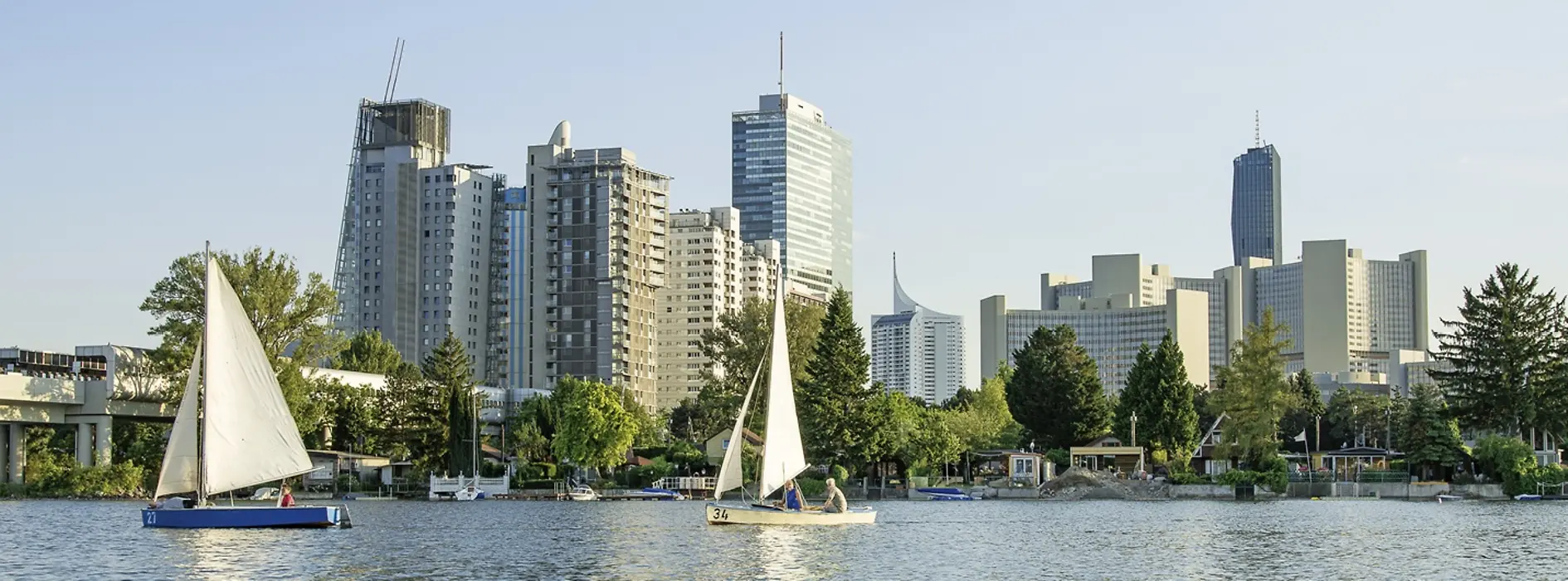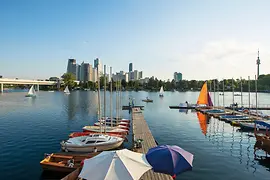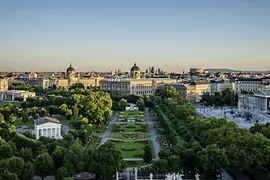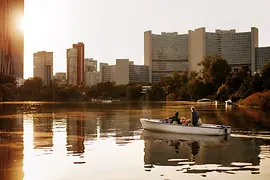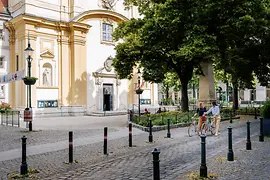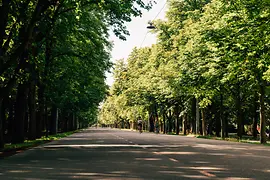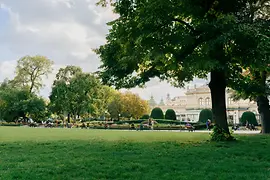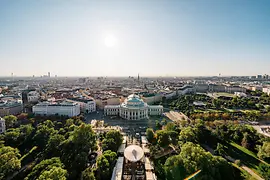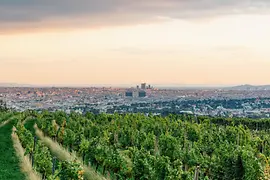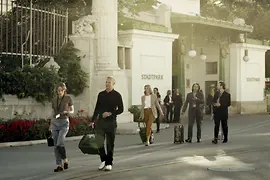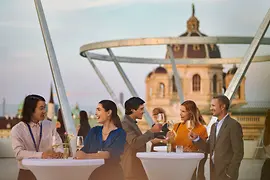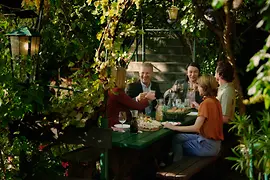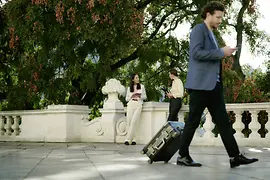Vienna, an Innovative Green Meeting Destination
As cities worldwide continue to grow, climate efficiency and careful use of resources are playing a central role. By 2050, two thirds of the world’s population will live in cities, meaning that built-up environments have a special responsibility when it comes to safeguarding the future. But Vienna has long been working on its own urban development, which focuses on the ecological as well as the economic and social dimensions of sustainability. And with great success - which is attested to in various ways, including top placements in corresponding international rankings: Vienna topped the Economist Intelligence Unit's 2023 Global Liveability Index, and also claimed top spot in the latest Smart City Strategy Index published by consultancy firm Roland Berger (2019). In addition, the Austrian capital was named the best city to live in worldwide by the renowned global media brand Monocle in June 2023.
Vienna's innovative urban strategy plays no small role in these achievements, with the capital's Smart City Strategy driving progress. With the goal of going carbon-neutral by 2040 already enshrined in a 2020 Vienna government accord, the Austrian capital went on to reaffirm its commitment to meeting global and European climate targets by revising its objectives. From climate-sensitive urban planning and measures affecting the energy sector, to adopting a circular economy and focusing on environment-friendly mobility, and finally fostering participation and social inclusion - each of the individual topics is approached under three overarching aspects: quality of life, resource conservation and innovation. The Visitor Economy Strategy 2025 targets the holistic development of the destination, with stakeholder participation involving residents and visitors alike. Organizers and meeting participants also benefit from the resulting breakthroughs, increasingly innovative projects and trend-setting concepts.
Innovative Meeting Destination
Vienna is a safe and clean international capital with famously reliable and efficient infrastructure. Studies confirm that its excellent public transportation network is among the top performers anywhere in the world. Five subway lines, 28 tram lines and 131 bus routes get about two million passengers from A to B each day. And that's before the suburban trains and regional services operated by Austrian National Railways (ÖBB) enter the picture. Talking of trains: thanks to the Nightjet services offered by Austrian National Railways (ÖBB) , Vienna is the largest overnight passenger rail hub in the European Union and connects Europe's major cities by train.
A smart and conveniently compact city, the Austrian capital is pedestrian-friendly with many attractions within close walking distance of each other – surrounded by plenty of green spaces. Thanks to its firm commitment to sustainability, Vienna enjoys a strong reputation as a laid-back capital that offers all of the amenities of a major urban center without the stresses that usually come with it. Vienna's versatile meeting infrastructure is concentrated in a compact area. Its The three convention centres - the Austria Center Vienna, HOFBURG Vienna and Messe Wien Exhibition & Congress Center - are supplemented by around 250 additional, highly diverse event locations. The majority of them are centrally located, meaning they are easy to reach both on foot and by public transportation. Numerous venues in Vienna also have sustainability firmly in their sights: more than 40 have already been certified with the Austrian Umweltzeichen ecolabel.
Sustainability during meetings...
The Umweltzeichen ecolabel, the country's high-profile, state-certified environmental quality seal, is awarded in four categories: Products or Services, Tourism and Catering Establishments, Educational and Cultural Institutions, and Green Meetings & Events.
Participants at ecolabel-certified Green Meetings and Green Events can rest assured that the organizers are committed to sustainability and responsibility in the following areas:
- Regional value added
- Environmentally friendly travel to and from the event by participants
- Sustainable products for participants (waste avoidance)
- Locally-sourced, seasonal and organic food for catering and food services
- Resource-aware management of materials, environmentally friendly procurement
- Waste prevention and eco-friendly waste disposal
To qualify for certification, organizers must satisfy a wide variety of environmental criteria. Additional specifications apply to non-organizational aspects such as reusability and quality considerations. Entrepreneurs and event organizers can use the certification to underline their commitment to the strictest environmental standards and doing their bit for sustainability. Thanks in part to its wide-ranging criteria, the label has established itself as an international benchmark, in yet another confirmation of Vienna's pioneering role in minimizing the impact of its activities on future generations. As an official ecolabel licensee since 2011, the Vienna Convention Bureau is also an established consultant for organizers and businesses looking to secure certification.
...and away from meetings
Vienna also offers countless opportunities to maintain the focus on sustainability beyond the event location itself. Special social programs with a focus on sustainability and CSR are specifically designed to promote environmental and social awareness through various sessions including climate workshops, social city tours and community cooking courses.
Organizers looking to get to know Meeting Destination Vienna better can do so during a sustainable site visit.
Show alternative text
Video Green Spirit - Vienna Moods
